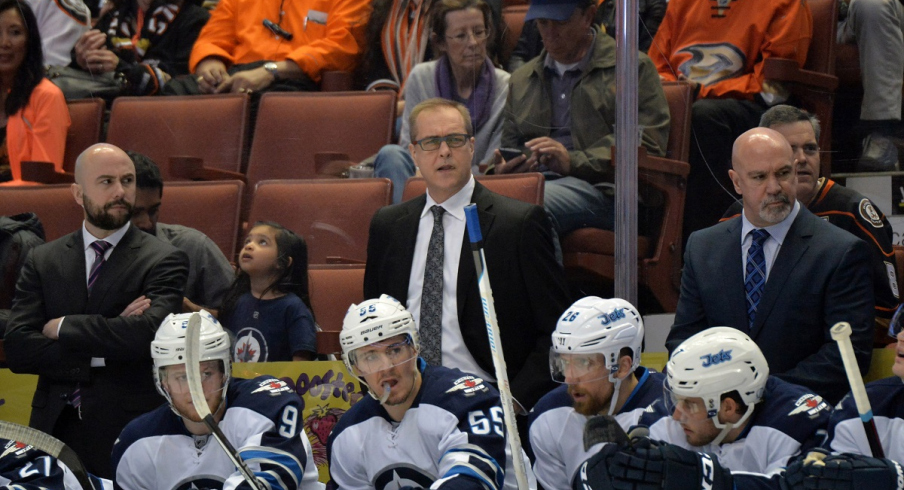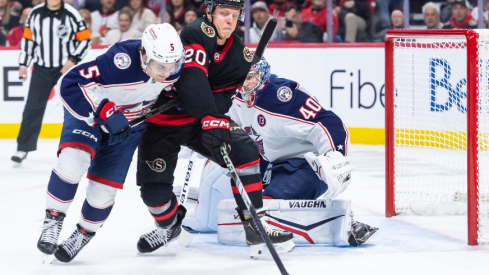Columbus Blue Jackets head coach Mike Babcock is heading into his first season with two incumbent assistant coaches. On the surface, that may not seem like news, but it is notable that a veteran coach, who was clearly brought in to change the culture and direction of the franchise, decided to stick with both assistant coaches.
Pascal Vincent has now twice been a candidate for the Blue Jackets head coaching job and remains the associate coach. And Steve McCarthy has been in the organization as an assistant for nearly a decade, both as an assistant in AHL Cleveland and now entering his third year in Columbus.
But the pressure is on for these two coaches to get the best out of the roster. If they can't make progress this year, it's safe to wonder if they have a future here beyond this season. Here are three questions about the assistant coaches:
What can be done to fix the power play?
Death, taxes, and a bottom-ten power play. The Blue Jackets have been atrocious on the power play for years. Since 2018-19, their league ranking has been 28th, 27th, 27th, 24th, 26th.
This is a real chicken and egg conundrum. If the players are bad, the power play is bad, and the coaching staff wears the burden. But if the scheme and the power play are bad, then the players wear it. You can't blame injuries for five straight years. This is perhaps the most important area of opportunity for the coaching staff to directly impact the success of the team this season. With playmakers like Johnny Gaudreau, Zach Werenski, and Kent Johnson, scorers like Patrik Laine and Kirill Marchenko, and a net-front presence like Boone Jenner, the answers seem to be in-house. It's time for it to click.
How will the assistants help supplement Babcock's systems?
If the power play is high on the list, the defensive system is higher. The Blue Jackets gave up 4.01 goals per game last season, second worst only behind the Anaheim Ducks. Giving up four goals per game is a surefire way to get fired. But miraculously, Vincent and McCarthy are still on staff. The head coach charts the path, but it's incumbent on the assistants to help implement it. They were given a pass, clearly, but their probably isn't much rope left.
Babcock has talked a good game this offseason about getting on the same page, and being organized. In the modern NHL, the best way to defend is 200 feet away from your goal, and it will be fascinating to watch what types of offensive and neutral zone forecheck he deploys. Then, in the defensive zone, there is obviously plenty of room for improvement. How can the assistants help Babcock get his message across a year after they were (in part) responsible for the 31st-worst team defense?
How will their voices change as a part of Babcock's staff?
Questions 1 and 2 are easy enough to track. A quick scan on any website will be able to tell us where the power play stacks up and how many goals against they've allowed compared to their peers. This question is much more subjective, but one I'm curious about nonetheless.
When a new boss arrives, be in in the NHL or anywhere, the culture is changed. Roles evolve. Authority shifts. How will Vincent and McCarthy adjust to Babcock, and how will they be perceived by players? It was a bit surprising that both were brought back, with Brad Larsen being the only fall-guy. Will the dynamics change, and if so, in what way?
Head coaches get the majority of the recognition and blame in professional sports. In some ways, that's justified. They are the CEO, and it's ultimately their systems that are either celebrated or lambasted. But the assistant coaches are the ones behind the scenes working on the minute details of the game, playing off the head coach in a good-cop/bad-cop role. They are vitally important to a team's success. Time will tell if the right decision was made to bring them back; or not.

